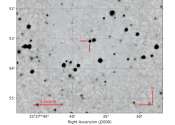AI helps to detect invasive Asian hornets
Artificial Intelligence can be used to detect invasive Asian hornets and raise the alarm, new research shows. University of Exeter researchers have developed VespAI, an automated system that attracts hornets to a monitoring ...









